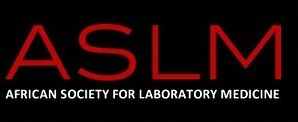ASLM hosts Global Health Security Agenda for 2015
The African Society for Laboratory Medicine (ASLM) has on Thursday, 15th October, 2015 hosted a joint meeting with Guinea , Liberia and Kenya on the Global Health Security Agenda at the Radisson Blu Mammy Yoko Hotel at Aberdeen in Freetown.
In her comment, the World Health Organisation (WHO) Representative to the Global Health Security Agenda, Mrs. Margaret Lamunu, said that in order to support countries in their efforts to strength their laboratory capacity testing to meet international health regulations standards and fulfill the Global Health Security Agenda (GHSA) objectives in Africa , WHO will partner and establish sub-regional laboratories and various laboratory networks around the globe.
She also revealed that WHO Regional Office for Africa has established the Regional Emerging and Dangerous Pathogens Laboratory Network(REDPLN) whose role would be to diagnose high security health threats like Ebola, Lassa Fever, Rift Valley Fever, Marburg, Lujo , Hemorrhagic Fevers, Dengue Fever and Congo – Crimea Fever etc. She disclosed that this network comprises of fourteen African countries including Sierra Leone.
“Despite the progress and efforts being made to strengthen laboratory capacities in the WHO African Regions, challenges like availability and access to quality laboratory services, inappropriate responses to epidemic diseases and patient management systems are among the major challenges,” she noted.
Mrs. Lamunu further stated that from the data they received from the Early Warning System (EWS) through the Event Management System (EVM) , 70 public health events were reported to the Regional Office between January and July 2015 of which 81 % were due to infectious diseases like Cholera being the most frequently reported infectious disease scoring 26% and a few of these public health events reported lack of laboratory capacities to test them on time.
She also stated that the 12 million deaths annually in sub- Saharan African countries remains uninvestigated even though WHO is still giving its support to these African countries. She added that despite the emerging and re- emerging disease threats yet still few countries in Africa can boast of having the capabilities for diagnosing highly infectious diseases such as viral hemorrhagic fevers , severe acute respiratory syndrome, Merscoronavirus, MDR/ XDR to name but a few.
“I am sure with the commitment shown by the Regional Director to intensify collaboration with partners such as ASLM L, laboratories will be strengthened to achieve the Global Health Security Agenda (GHSA) objectives and meet international health regulations,” she maintained.
In his statement, Minister of Health and Sanitation, Dr. Abu Bakarr Fofanah, said that the outbreak of the Ebola virus disease in Sierra Leone has exposed our weakness which will serve as a wakeup call to us as a country , region and the world at large in recognizing the missing but very important structures needed to avert such calamities.
He reiterated that medical laboratories in Africa are under developed and cannot meet the testing demands of the rapid growth of health delivery services in this 21st century.
He thanked the ASLM for recognizing World Health Organization (WHO) Resolution AFR/RC58/R2 to strengthen public health laboratories in the Africa region and the 2008 Maputo Declaration to strengthen laboratory systems in Africa by training laboratory professionals and Clinicians through a standardized framework in Africa.
“We are appealing to international partners to provide the ASLM with the financial and logistic support that they need in order to enable them to achieve their targeted goals,” the Minister pleaded.
He explained that high quality laboratory testing is an essential component in initiating a public health response to terrorism , natural disasters and emerging threat.
In his remarks, Ambassador Bonnie Jenkins of the United States of America Department of State for threat Reduction Programme said that the United States of America is committed to working with partner countries in the sub- region including Sierra Leone , Liberia , and Guinea in the fight against global diseases like Ebola in the said countries.
She disclosed that GHSA represents a governmental and society approach to achieve a world safe and secure from the threat of infectious diseases and that this would not come to pass if non -Governmental organizations of the various countries did not embrace a joint mission with common objectives and targets.
Mrs. Jenkins also explained that during the GHSA summit held in September 2014, Washington DC has partnered with five GHSA countries in Africa including Uganda which volunteered to serve as a pilot nation for the external evaluation and assessment of their GHSA capabilities.
She said she was happy to report that the assessment described and reviewed structures of government that are responsible for the prevention and detection of infectious diseases in Africa.
“ I am encouraged to see the African Society for Laboratory Agenda (ASLA) showing keen interest in engaging with the Global Health Security Agenda (GHSA), and linking with other non- government stakeholders in achieving their objectives, ” she enthused.
Miss Fatu Yunkella who is the Managing Director of Dalan Development Consultants, an organization that partners, when asked whether it was the responsibility of ASLM to build laboratories in countries that were prone to disease threats, said that the ASLM need not be constructing laboratories but rather should be giving support to and strengthening the capacities of laboratories in Africa countries that were prone to epidemics like Ebola.
“With the support we receive from the Government of Sierra Leone and the funding we also receive from our international partners, the work of ASLM will become easier and more effective,” she noted.
By Mohamed Kamara
Stay with Sierra Express Media, for your trusted place in news!
© 2015, https:. All rights reserved.






